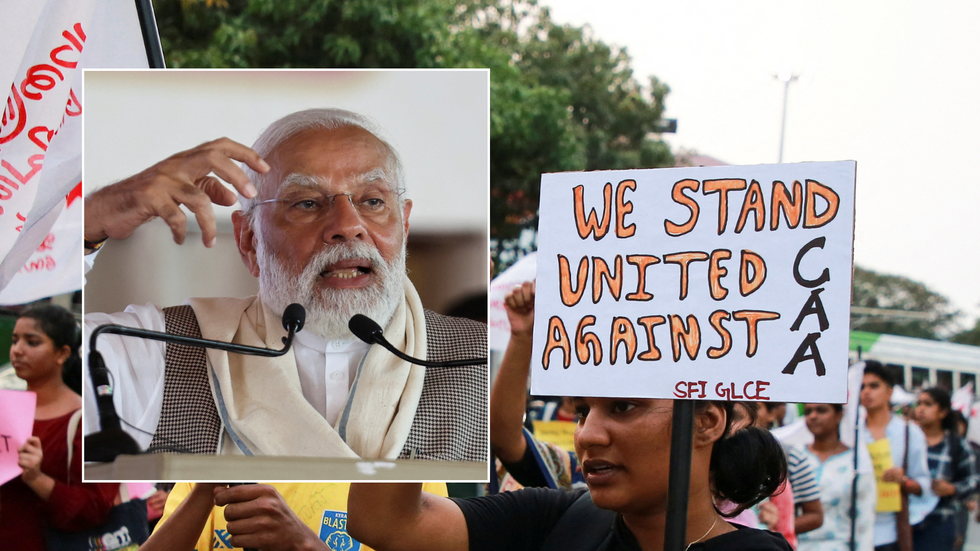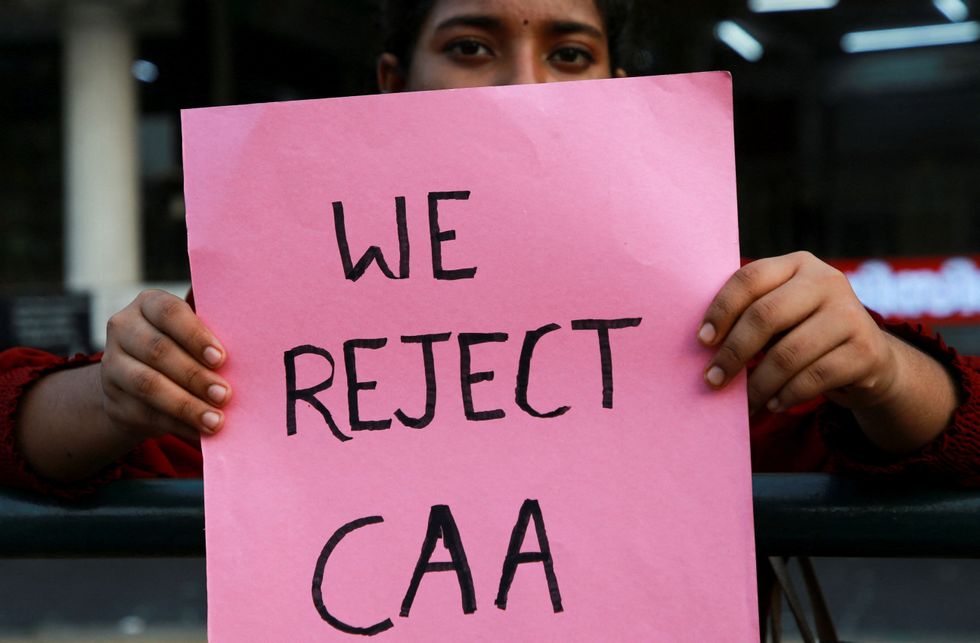The law is 'meant to only target Muslims', opposition leaders said
Don't Miss
Most Read
Trending on GB News
India’s government has taken steps to pass a controversial citizenship law which will see foreign Muslims excluded from obtaining Indian citizenship.
The move, announced yesterday, will allow authorities to push through the Citizenship (Amendment) Act (CAA) – giving non-Muslim immigrants from Afghanistan, Bangladesh and Pakistan a fast-track to becoming Indian citizens.
The law applies to foreign minority groups persecuted on religious grounds, covering Hindus, Sikhs, Buddhists, Jains, Parsis and Christians – though not Muslims, the dominant religion in the three countries, not Jews, and not refugees fleeing religious persecution in non-Muslim countries.
It overrules current restrictions enforced by the current Citizenship Act 1955 which completely prohibits illegal immigrants becoming Indian citizens.

Indian PM Narendra Modi has been accused of passing the Act "for political reasons"
Reuters
While those chasing citizenship must now prove that they arrived in India from the three countries before December 31, 2014.
India’s Home Minister Amit Shah took to social media to share the news of the announcement, saying: “The Modi government today notified the Citizenship (Amendment) Rules, 2024.
“These rules will now enable minorities persecuted on religious grounds in Pakistan, Bangladesh and Afghanistan to acquire citizenship in our nation.
“With this notification, Narendra Modi has delivered on another commitment and realised the promise of the makers of our constitution to the Hindus, Sikhs, Buddhists, Jains, Parsis and Christians living in those countries.”
READ MORE INDIA NEWS:
- Tourist on round-the-world trip 'gang raped by seven men in India'
- Indian migrants forced to fight on Russia's frontline 'against their will' after having passports seized
- £3M MIGRATION SCAM: British Airways supervisor 'on the run' in India after charging immigrants £25k to use 'loophole' to fly to UK

The news has already sparked protests in the state of Assam, where 35 per cent of the population are Muslim
Reuters
The law had been passed in 2019, attracting heavy criticism both in India and from overseas for being the first instance in Indian law of religion being used as a criterion for citizenship.
Domestically, the initial passing of the law triggered large-scale protests in which dozens of people died, delaying the Act’s enshrinement into law until now.
Critics have said the Act is discriminatory against India’s 200 million-strong Muslim population, and have slated PM Narendra Modi for what they say is an overreach by his Hindu nationalist Bharatiya Janata Party (BJP).
According to India’s most recent census, just under 80 per cent of its population is Hindu – but its constitution rests upon secular principles, which opponents have invoked to say the law is prejudicious.
Asaduddin Owaisi, leader of the All India Majlis-e-Ittehadul Muslimeen party, said: “CAA is meant to only target Muslims, it serves no other purpose.”
The BJP has been hinting at implementing the Act – one of its key campaign promises ahead of India’s expected April-May election – for months.
But All India Trinamool Congress party leader Mamata Banerjee said: “After multiple extensions in four years, its implementation two to three days before the election announcement shows that it is being done for political reasons.”
Jairam Ramesh, communications chief for the Indian National Congress, said: “The time taken to notify the rules for the CAA is yet another demonstration of the Prime Minister's blatant lies.”








